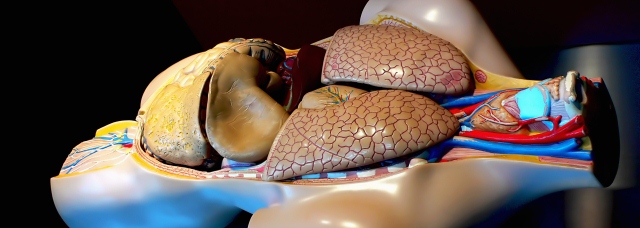Dr. Sarah Jarvis
21 November 2012


Your liver is a bit of an unsung hero. All day, every day, it works hard to clear the waste products and toxins your body produces, or takes in. It takes up these waste products from your bloodstream, breaks them down and sends them down your bile duct, in a liquid called bile, into your intestine.
This bile helps with digestion. Your liver also controls some infections and helps your blood clot properly. You may take your liver for granted, but you couldn't cope without it!
Liver disease - what happens?
The yellow tinge of jaundice is caused by the build-up of a substance called bilirubin in your bloodstream. It's produced when your red blood cells, which only 'live' for about three months, are broken down. If the cells of your liver are inflamed, or if the exit to your bowel through your bile duct is blocked, it can cause jaundice.
Cirrhosis is a serious condition where the healthy tissue in your liver is replaced with scar tissue. An earlier change is called 'fatty liver'.
Liver disease - what are the preventable causes?
Some inherited problems can cause liver disease. However, the most common preventable causes are:
Alcohol - Most people who drink more to excess (see below) for any length of time will develop fatty liver. This can stop your liver from working efficiently, but it goes away if you stop drinking. If you carry on, your liver can get inflamed. Finally, about one in ten heavy drinkers can go on to get cirrhosis.
Obesity - If you're very overweight, fat can build up in your liver - another kind of 'fatty liver'. This can cause scarring and occasionally cirrhosis.
Hepatitis - This just means inflammation of the liver. Several viral infections cause hepatitis. Hepatitis A, sometimes called Infectious hepatitis, is very easy to catch but almost never causes long-term damage. It's very common in some countries, and a simple vaccination will protect you. Hepatitis B is less easy to catch (usually by sexual or blood contact) but it can sometimes cause cirrhosis. Ask your nurse if you need immunising against this too, if you're going abroad.
Medicines - Some medicines can affect your liver. Usually stopping the medicine will solve the problem. Your doctor can tell you if you need regular blood tests to check.
Liver disease - what can I do?
With a little care, your liver will last you a lifetime. To keep it in tip-top shape:
- Stick to recommended alcohol guidelines - up to two to three alcohol units a day and under 14 units a week of alcohol for women and three to four units a day or 21 units a week for men. A bottle of wine has nine units and a pint of beer about two
- Keep an eye on your weight
- Make an appointment with your nurse at least six weeks before you travel abroad
- Get regular blood tests if you're taking some medicines, including statins.